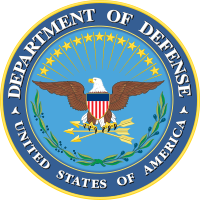The Living Quarters Allowance (LQA) is provided to eligible employees for leased or personally owned quarters in lieu of Government provided housing and is intended to cover the average cost of rent, utilities, and other allowable expenses. A maximum LQA is established for each foreign duty location based on the employee’s grade, quarter’s group, and family size. LQA expenses will not exceed the authorized annual cost of rent and utilities, or the maximum rate set by the Department of State, whichever is the lesser amount. LQA is nontaxable.
Personally Owned Quarters
When occupying quarters owned by an employee, spouse, or both, an amount of up to ten (10) percent of the original purchase price of such quarters shall be considered the annual rate of the employee’s estimated expenses for rent. For personally owned quarters, the LQA amount is converted to US dollars using the exchange rate in effect on the date of purchase. Therefore, the biweekly amounts for the rental portion will not normally fluctuate unless there is a change to the maximum rate authorized. Only expenses for heat, light, fuel, (including gas and electricity), water, garbage, and trash disposal and in rare cases land rent, may be added to determine the employee’s quarters allowance up to the maximum authorized. The amount of the rental portion of the allowance (up to ten (10) percent of the original purchase price) is limited to a period not to exceed ten years at which time the employee will be entitled only to utility expenses, garbage, and trash disposal, plus land rent, if applicable. Once the purchase of a home begins, you are authorized receipt of LQA for up to ten (10) years, regardless of if you choose to sell or remain in the home for the remainder of your career within the commuting area. Once LQA stops, you will receive the utility portion only.
Payment of LQA
LQA payment is reflected bi-weekly on your Leave and Earnings Statement as nontaxable income. LQA is computed by dividing the authorized annual expenses by 365 days (366 in a leap year) to obtain a daily rate. The daily rate is multiplied by 14 (days) to obtain the bi-weekly rate. The Defense Finance and Accounting Service (DFAS) makes payments to employees in US dollars, using the authorized foreign currency expenses and converting the amount to US dollars using a DFAS exchange rate. DFAS automatically adjusts LQA payments each pay period for Department of State maximum rates or foreign currency conversion rate changes.
Reporting Adjustments to your Foreign Allowances
Employees are responsible for reporting any changes impacting any foreign allowance authorization. Below are some examples that must be reported by submitting an SF-1190 through DoDEA Allowance Processing System (DAPS) as soon as possible after the event occurs to avoid any under/overpayments. Contact your servicing Human Resource Specialist for eligibility questions.
- Change in marital status (i.e. marriage/divorce/separation/death of spouse)
- Change in the number of family members residing at post
- Birth or death of a child
- Legal adoption or obtaining legal custody/guardianship of a child
- Child reaches age 21
- Change in residence quarters
- Letting or subletting of quarters
- Sharing of LQA expenses
- Reaching 10-year eligibility for rental portion for homeowners
For further information on living quarters allowance, refer to DSSR, Section 130.
For more information on allowance rates, refer to the DSSR allowance webpage.




